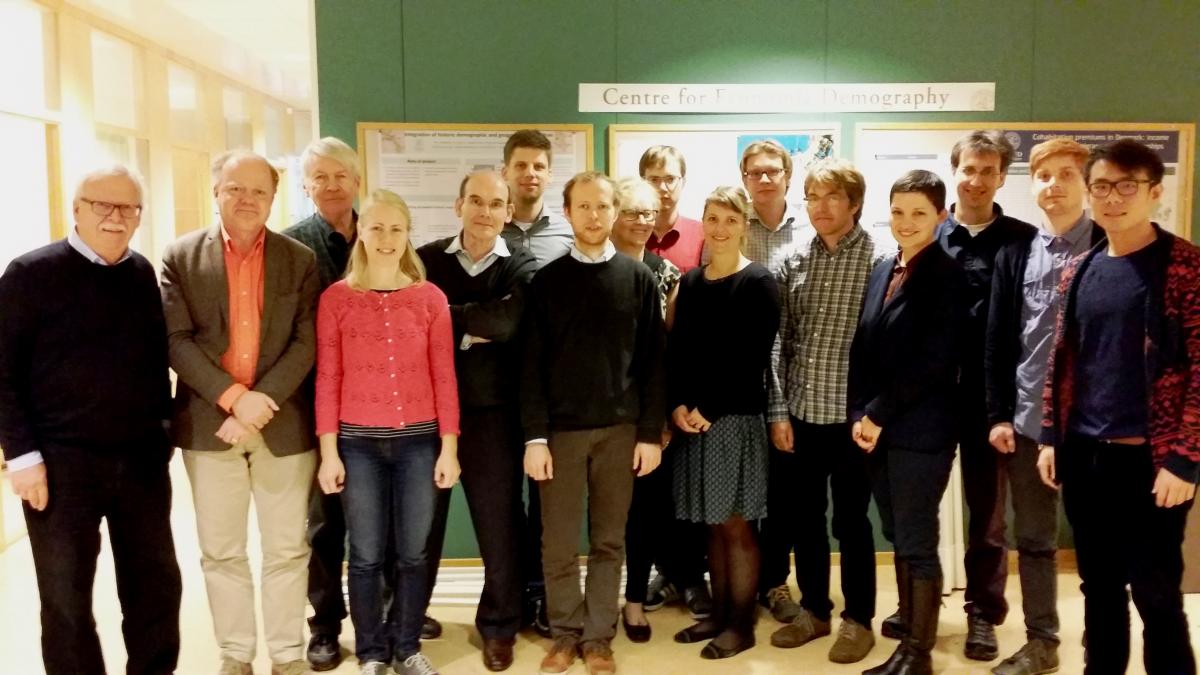IUSSP Seminar on Early-life Determinants of Late-life Employment, Ill Health and Early DeathLund, Sweden, 20-21 October 2014 Organized by the IUSSP Scientific Panel on Pathways to Health
Chair: Mikko Myrskylä (London School of Economics and Political Science) Membership: Tommy Bengtsson (Lund University), Alain Gagnon (Université de Montréal), Ke Shen (Fudan University, Shanghai), Gerard Van Den Berg (University of Mannheim), Ken Smith (University of Utah).
This seminar was organized by the IUSSP Scientific Panel on Pathways to Health, in collaboration with the Centre for Economic Demography, School of Economics and Management, Lund University, and held in Lund, Sweden, 20-21 October 2014.
This seminar brought together 20 researchers working at the intersection of labour market participation, retirement, and health to shed light on the life-course processes that influence labour market performance and older-age health. Ten papers were presented. Priority had been given to contributions based on prospective data suitable for analysing unhealthy ageing in a full life-course perspective.
Late-life employment, ill health and early death are determined not only by recent lifestyles and work place conditions, but also by factors earlier in life; possibly dating back to the fetal stage or even to events affecting the parental and grandparental generation. Examples of adverse conditions during sensitive periods early in life that hamper cognitive development, labour market performance and health in later life include maternal health during pregnancy, diet, and disease environment, such as incidence of infections and epidemics in early childhood. Examples of risks that accumulate over the life-course include exposure to pollution, smoking and other unhealthy lifestyles. The pathways from adverse conditions in early childhood to poverty and ill health in working life are either direct, through permanent but latent damage that manifests itself later in life, or indirect, via school achievement or income development, life styles, reproductive behaviour, etc. Some can be mitigated, for example by means of policy interventions, while others cannot. Consequently when analysing health conditions and labour market performance in ages 50 and above, focus should not only be on contemporary conditions and lifestyles, but also on conditions over the life course, beginning in early childhood.
Several contrasting issues were discussed throughout the seminar and during the final summarizing session. These include exposure to harmful conditions in utero and/or in first year(s) of life, exposure to disease and/or malnutrition, scarring versus selection, and direct versus indirect effects of harmful conditions in early life. In addition the importance of estimating the magnitude of impact, and not only the relative importance of early-life factors on later life outcomes was emphasized. So was the importance of use of prospective data sets that cover the entire life course, from before birth to old age. Since these data sets typically cover small populations, the importance of collaborative projects was emphasized.
See also: Report, programme and participants |

